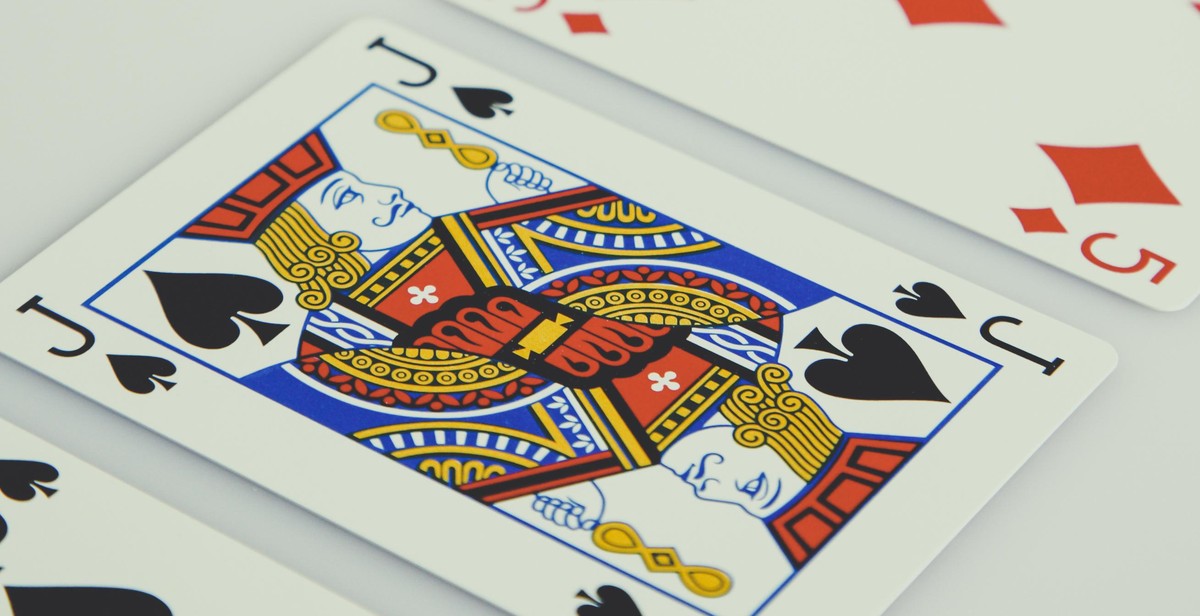How to Play Poker: Advanced Strategies for Tournament Success
Poker is a game of skill and strategy that has gained immense popularity over the years. While luck plays a role in the game, it is the players who have a solid understanding of the game’s mechanics and employ advanced strategies who consistently come out on top.
The Basics of Poker
Before diving into advanced strategies, it is essential to have a solid understanding of the basics of poker. Poker is a card game where players bet on the value of their hand. The game is played with a standard deck of 52 cards, and the goal is to have the best hand at the end of the game.
The Importance of Strategy
While luck can play a role in the game, the most successful players understand that strategy is key to winning consistently. Advanced strategies involve analyzing opponents’ behavior, understanding the odds, and making calculated decisions based on the situation.
Tournament Success
Tournaments are a popular way to play poker and provide an opportunity for players to win big. However, tournament play requires a different strategy than cash games. Advanced tournament strategies involve managing your chip stack, adjusting to different stages of the tournament, and exploiting weaknesses in your opponents’ play.
In this article, we will explore advanced strategies for tournament success that will help you take your poker game to the next level.

Understanding the Basics of Tournament Poker
Playing poker tournaments requires a different set of skills compared to cash games. In a tournament, you pay a fixed buy-in and receive a set number of chips. The goal is to accumulate all the chips in play, with the winner receiving the lion’s share of the prize pool. Therefore, it’s essential to understand the following basics of tournament poker:
Blinds and Antes
Blinds and antes are mandatory bets that players have to make in each hand. The blinds are posted by the two players to the left of the dealer, and the player immediately to the left of the big blind is the first to act. The big blind is typically twice the size of the small blind. The antes are small bets that every player has to make in each hand, regardless of their position. The blinds and antes increase periodically, which puts pressure on players with smaller stacks to make a move.
Stack Sizes
Stack sizes are crucial in tournament poker. It’s essential to know how many chips you and your opponents have at all times. Your stack size determines your ability to play aggressively or conservatively. If you have a big stack, you can afford to take risks and put pressure on your opponents. However, if you have a small stack, you need to play cautiously and look for opportunities to double up.
Position
Position is critical in poker, and it’s even more crucial in tournament poker. The later your position, the more information you have about your opponents’ hands. You can use this information to make better decisions. For example, if you’re in late position, and your opponents have checked to you, it’s likely that they don’t have a strong hand. You can take advantage of this by making a bet or a raise.
Hand Ranges
Hand ranges refer to the range of hands that a player is likely to have based on their actions in a hand. It’s essential to understand your opponents’ hand ranges to make better decisions. For example, if your opponent raises pre-flop, they’re likely to have a strong hand. On the other hand, if they limp into the pot, they’re likely to have a weak hand. By understanding your opponents’ hand ranges, you can make better decisions and avoid costly mistakes.
| Term | Definition |
|---|---|
| Blinds | Mandatory bets posted by the two players to the left of the dealer |
| Antes | Mandatory bets made by every player in each hand |
| Stack Sizes | The number of chips a player has |
| Position | The player’s position at the table |
| Hand Ranges | The range of hands a player is likely to have based on their actions in a hand |

Advanced Strategies for Tournament Success
Aggression and Playing the Right Hands
One of the key strategies for tournament success is to play aggressively and know which hands to play. In poker tournaments, the blinds increase over time, which means that players need to accumulate chips quickly. To do this, players need to be aggressive and play hands that have a high probability of winning.
Playing aggressively means that players need to raise and re-raise frequently, especially when they have a strong hand. This can put pressure on their opponents and force them to make mistakes. However, players need to be careful not to become too aggressive, as this can lead to them losing chips unnecessarily.
Knowing which hands to play is also crucial for tournament success. In general, players should only play hands that have a high probability of winning, such as pocket pairs, suited connectors, and high-value cards. Players should also be willing to fold weaker hands, especially if they are in early position.
Playing with the Right Mindset
Another important strategy for tournament success is to play with the right mindset. Players need to be focused, disciplined, and patient throughout the tournament. They also need to be able to handle the ups and downs of the game and not let their emotions get the better of them.
One way to maintain the right mindset is to have a plan for the tournament. This includes setting goals, such as reaching a certain level or finishing in the top 10, and having a strategy for each stage of the tournament.
Reading Your Opponents
Being able to read your opponents is a key skill in poker tournaments. Players need to be able to identify their opponents’ playing styles, tendencies, and tells. This can help players make better decisions and adjust their play accordingly.
One way to read your opponents is to observe their betting patterns. For example, if an opponent frequently raises pre-flop, they may have a strong hand. If they check or call frequently, they may have a weaker hand.
Table Image and Adjusting Your Play
Table image refers to how other players perceive you at the table. If you have a tight table image, other players may be less likely to call your bets, while if you have a loose table image, they may be more likely to call.
Players need to be aware of their table image and adjust their play accordingly. For example, if you have a tight table image, you may want to bluff more often to catch your opponents off guard. If you have a loose table image, you may want to play more conservatively to avoid losing chips unnecessarily.
| Key strategies for tournament success: |
|---|
| Play aggressively and know which hands to play |
| Play with the right mindset |
| Read your opponents |
| Be aware of your table image and adjust your play accordingly |
By following these advanced strategies for tournament success, players can increase their chances of winning and achieving their goals in poker tournaments.

Preparing for a Tournament
Participating in a poker tournament can be an exhilarating experience, but it requires a lot of preparation. Here are some essential tips to help you prepare for a tournament:
Bankroll Management
Before participating in any tournament, it’s crucial to have a proper bankroll management strategy in place. You should never risk more than you can afford to lose. Ideally, you should have a separate bankroll specifically for tournament play. This will help you avoid dipping into your regular poker bankroll and potentially losing more than you can afford.
A good rule of thumb is to allocate no more than 2-3% of your bankroll to any single tournament. For example, if your bankroll is $10,000, you should only play in tournaments with a buy-in of $200-$300. Additionally, you should always have a plan for how you will handle losing streaks and adjust your bankroll accordingly.
Game Selection
Not all tournaments are created equal. It’s important to choose tournaments that are appropriate for your skill level and bankroll. Look for tournaments with a manageable field size and a buy-in that’s within your budget. Smaller buy-in tournaments can be a great way to build your bankroll and gain experience.
It’s also essential to consider the tournament structure. Look for tournaments with a slow and steady blind structure that allows you to play your best game without feeling rushed. Avoid tournaments with a fast-paced structure that requires you to take unnecessary risks.
Physical and Mental Preparation
Preparing for a tournament isn’t just about bankroll management and game selection. It’s also about taking care of yourself both physically and mentally. Make sure you get enough sleep the night before the tournament and eat a healthy meal before you play. Staying hydrated is also crucial as it can help you stay alert and focused.
Mentally, it’s important to approach the tournament with a positive attitude. Visualize yourself playing your best game and winning the tournament. Avoid distractions like your phone or social media and focus on the game at hand.
Conclusion
By following these tips for preparing for a tournament, you’ll be setting yourself up for success. Remember to manage your bankroll, choose the right games, and take care of yourself both physically and mentally. Good luck!

Conclusion
Playing poker is more than just knowing the rules. It requires a combination of skill, strategy, and luck. As you have learned from this article, there are several advanced strategies that you can use to increase your chances of success in a poker tournament.
Recap of Advanced Strategies
- Be aware of your position at the table and adjust your strategy accordingly.
- Keep track of your opponents’ tendencies and adjust your play accordingly.
- Manage your bankroll carefully and avoid going on tilt.
- Be aggressive when necessary, but also know when to fold and cut your losses.
- Pay attention to the pot odds and make informed decisions.
Continuing Your Poker Education
While this article covers several advanced strategies, there is always more to learn when it comes to poker. Consider reading books, watching videos, and attending seminars to continue improving your skills. Additionally, practice and experience are crucial to becoming a successful poker player.
Final Thoughts
Playing poker is a challenging and exciting experience that requires dedication and hard work. By implementing the advanced strategies discussed in this article and continuing to learn and improve, you can increase your chances of success in a poker tournament. Remember to stay focused, manage your bankroll, and always be willing to adapt your strategy to the situation at hand.
